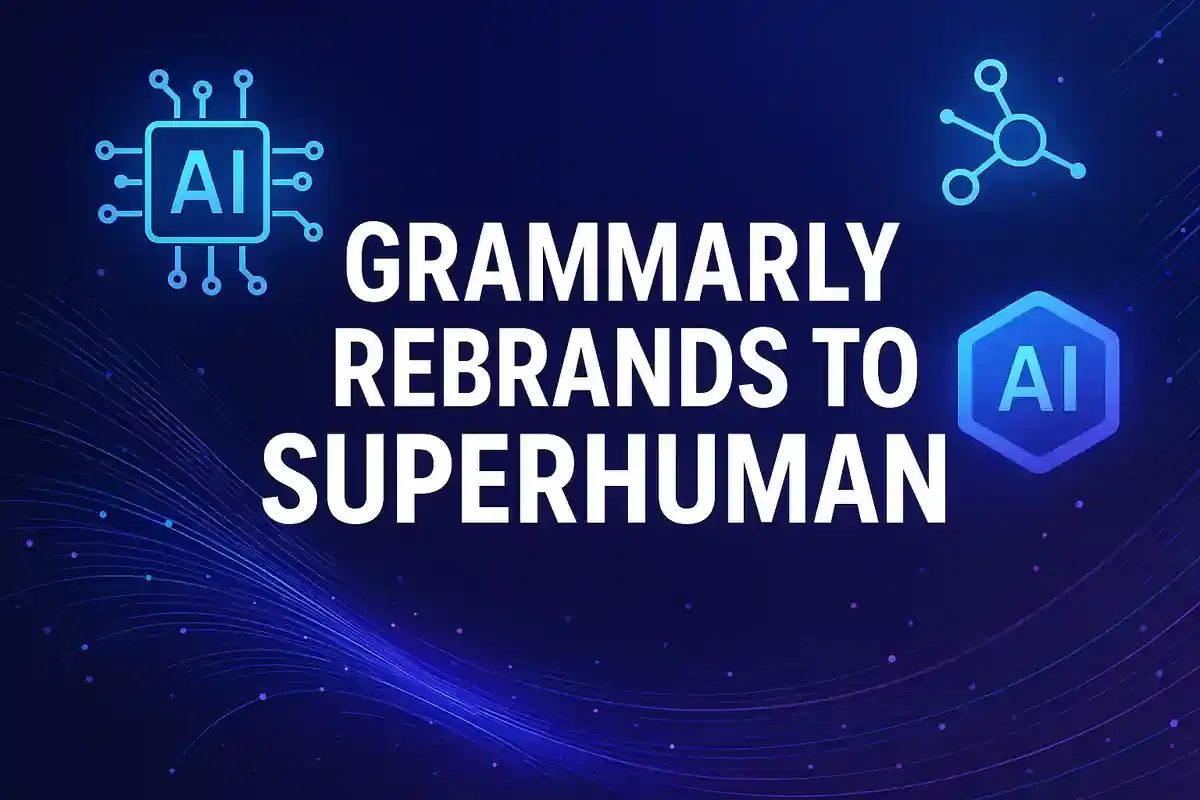Grammarly Rebrands to Superhuman, Launches AI Assistant Go
Tech
|
29th October 2025, 1:26 PM

▶
Short Description :
Detailed Coverage :
Grammarly, a company known for its writing enhancement tools, has announced a significant strategic shift following its acquisition of email client Superhuman in July. The company is rebranding its corporate identity to "Superhuman", although the Grammarly product itself will retain its name. This move signals a broader ambition to integrate acquired technologies and potentially rebrand other products, such as the productivity platform Coda, which it acquired last year.
A key development is the launch of "Superhuman Go", a new AI assistant embedded within Grammarly's existing extension. This assistant is designed to provide writing suggestions, offer feedback on emails, and leverage context from connected applications like Jira, Gmail, Google Drive, and Google Calendar to perform tasks such as logging tickets or checking meeting availability. Future enhancements aim to integrate data from CRMs and internal systems for more sophisticated email suggestions.
Grammarly users can access Superhuman Go through a toggle in the extension, with options to explore various agents like plagiarism checkers and proofreaders. Subscription plans are also updated: Pro at $12/month (annual billing) offers multi-language grammar/tone support, while Business at $33/month (annual billing) includes Superhuman Mail. The company aims to enhance its AI offerings across its product suite to compete with major players like Notion, ClickUp, and Google Workspace.
**Impact**: This rebranding and AI push by a significant player like Grammarly indicates the intensifying competition in the AI-powered productivity suite market. It suggests a trend towards integrating AI deeper into daily work tools, potentially driving innovation and new offerings from other tech companies globally and influencing investment trends in AI startups. For Indian tech companies, this highlights the importance of AI integration and competitive strategy. Rating: 6/10.
**Definitions**: * AI Assistant: A software program that uses artificial intelligence to perform tasks or provide services for users, such as answering questions, offering suggestions, or automating processes. * CRM (Customer Relationship Management): A technology for managing all your company's relationships and interactions with customers and potential customers. * Productivity Suite: A collection of software applications designed to help users perform various tasks related to work or personal productivity, often including word processing, spreadsheets, presentations, and email.